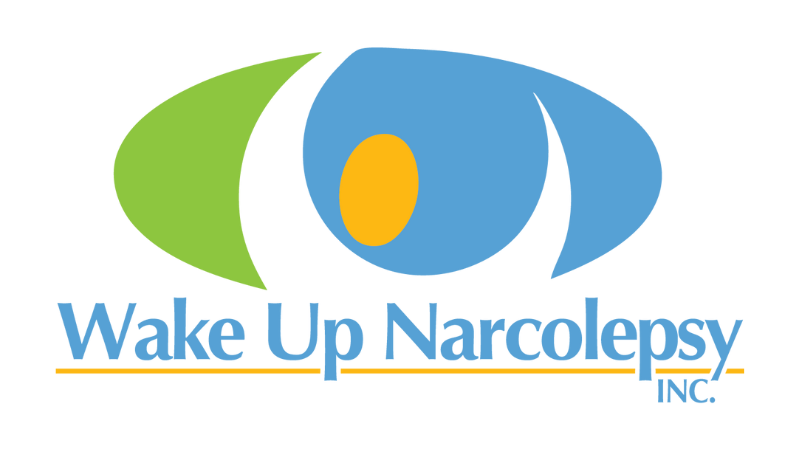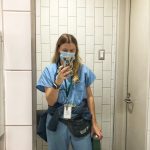Feb 22 2023
Sophie LeBlanc’s Narcolepsy Journey
h in Blogs
By Tana Bao MSN, NP, RN
Sophie LeBlanc is a twenty five year old, third year medical student at McGill University residing in Montreal, Canada. She is currently in the middle of completing her clerkships and is enjoying school. She states that her initial interest in medicine was spurred by her own experience navigating the Canadian health system. At age fourteen, Sophie was diagnosed with narcolepsy type I, also called Narcolepsy with cataplexy.
Sophie’s Path to Diagnosis
Although Sophie was diagnosed young at age fourteen, she had to endure a multitude of other medical tests, work-ups, and treatments before receiving her narcolepsy diagnosis. Sophie states she began to show symptoms of narcolepsy at age seven. She was falling asleep in the car all the time. She also needed long naps after school, which is not normal for children by the age of seven.
Her pediatrician ran some lab work to check for things like mono and iron deficiency. She was found to be slightly iron deficient, so her pediatrician concluded that anemia was the cause of her symptoms, prescribed her iron, and left things at that.
Sophie states the sleepiness she was experiencing didn’t become more of an issue until middle school. This was when she started falling asleep in class unintentionally. She wasn’t bored by any means, but just could not fight the urge to fall asleep.
At age nine, Sophie also started to develop cataplexy, which is a sudden loss of muscle tone that often affects the lower limbs during extremes of emotion [1]. Anytime Sophie would laugh, her knees would buckle. For a regular family with no medical background, Sophie and her parents didn’t realize this was related to her sleepiness – let alone a symptom of Narcolepsy – and otherwise didn’t think much of it.
Sophie’s mother kept pressing their physicians since they knew something was clearly not right. This led to screening for celiac disease which can be a cause of anemia in some patients. As part of this evaluation, Sophie had to undergo an endoscopy, which came back normal.
Finally, after seven long years with no answers, Sophie was referred to a pediatric sleep specialist at Children’s Hospital in Ottawa. She quickly had a sleep study and received her Narcolepsy diagnosis. At last, she and her family found clarity. In addition to providing kind, compassionate, and informative care, this physician who diagnosed and began Sophie’s treatment for narcolepsy inspired Sophie herself to pursue a career in medicine.
Educating Others About Narcolepsy
Now, armed with her diagnosis, Sophie truly embodies the expression that “knowledge is power.” Not only has she researched Narcolepsy extensively in her own time, Sophie also educates others as well. In school, she talks to anybody that takes an interest in Narcolepsy and openly shares her story living with the condition. Sophie was even able to convince her medical school to add a narcolepsy lecture to their curriculum, and she encourages her peers to always keep narcolepsy on their list of possible diagnoses when evaluating patients with fatigue or sleepiness. Hopefully, by spreading awareness, she can spare others the unnecessary testing she was put through.
She also tries to make sure people understand that this condition goes far beyond just not sleeping well and being tired. There are psychosocial issues that can be directly tied to Narcolepsy such as anxiety, social isolation, and in children, even bullying [2,3]. For anyone that may be struggling, Wake Up Narcolepsy encourages you to access our community resources and to know that you are not alone.
Moving Forward Living With Narcolepsy
Sophie still has good and bad days when it comes to living with Narcolepsy. She says most people don’t realize especially “how much planning goes into every day just around my sleep.”
For example, some days she has to carefully choose what to eat for lunch because too heavy of a lunch could cause her to “crash” early. When riding on public transit, sometimes she needs to be sure to set an alarm on her Apple Watch to make sure she doesn’t accidentally fall asleep and miss her stop. There have also been times that she has had to step away from her peers at lunchtime to nap, especially if it is her only available time to do so.
Despite the constant demand of balancing life and sleep that Narcolepsy creates, Sophie has managed quite well overall with support from her physicians, parents, younger sister, and medical school community. She has also found herself closer to Jesus navigating this journey. While she has found herself in a good place now with her medication therapy, she states that what also gets her through are two things in particular: remaining positive and finding the humor in it all. She often jokes that she is the “queen of power napping.”
Sophie’s Advice to the Narcolepsy Community
Narcolepsy should not hold anyone back from leading a productive and happy life, according to Sophie. For Sophie, right now, this means pursuing medical school and her long time goal of becoming a doctor. She isn’t completely sure what exact area of medicine she wants to go into, but is hoping to find something that will align with her interests and lifestyle goals. Whether this ends up being sleep medicine specifically is still to be determined.
Regardless, she encourages people with Narcolepsy to try and be positive, find the right support systems, and stay on top of your medical therapy. Things will be alright. Once you find a balance, people with narcolepsy can find just as much gratification from life as the next person.
As long as you “build narcolepsy into a healthy narrative about who you are as a person, you’ll realize that you can still achieve a lot in life especially with good support.” – Sophie LeBlanc.
If you would like to donate to Wake Up Narcolepsy directly or would like more information on how you can get involved, please follow this link.
Sources

